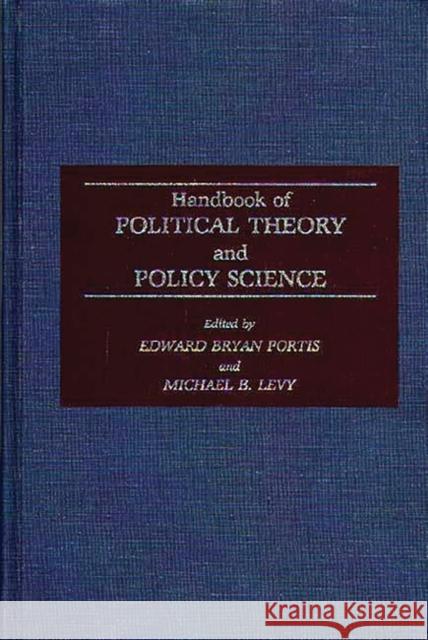Handbook of Political Theory and Policy Science » książka
Handbook of Political Theory and Policy Science
ISBN-13: 9780313255984 / Angielski / Twarda / 1988 / 301 str.
This is not a true handbook' if by that term one means a brief reference work or a practical manual. It is, rather, a well-ordered collection of articles with a common concern: the relation between policy science (which is essentially empirical and instrumental) and normative political theory (which includes moral evaluation of the goals of political action and institutions). . . . The editors have designated three general points of view which, respectively, hold the relation between political theory and policy science to be complementary, ' integral, ' or mutually exclusive.' There are also lucid introductions to each section. The articles themselves are not for beginners, but they do, for the most part, eschew heavyhanded jargon. Overall, the book is coherent and breaks new ground in political theory and policy science. It is well referenced and has a useful index. Indispensable for graduate and advanced undergraduate collections. Also suitable for sophisticated general readers. "Choice"
At the most general or inclusive level of meaning, theory and policy refer to two distinct ends of knowledge. While the tension between these two ends is not particularly strong in modern natural science, no such reconciliation has occurred in the social sciences where the role and nature of theory is far from obvious. As a result, a conclusive or consensual answer to the question of the optimal relationship between political theory and political science is not likely to emerge in the foreseeable future. The purpose of this handbook, therefore, is to present, compare, and clarify the most likely alternatives and to explore their implications for the purpose and potential of political science. In addition to offering surveys of ongoing work or major intellectual trends, the contributors to this handbook attempt to establish the validity of their views of the proper or necessary relationship between political theory and policy analysis. This volume presents the range of issues with which one must come to grips in formulating coherent and plausible positions and provides examples of arguments that lead to divergent conclusions.











